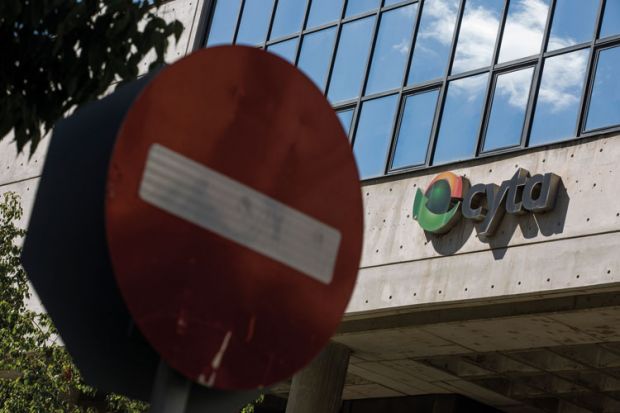The project to build the University of Central Lancashire’s Cyprus campus received a £16 million investment from the pension fund of the country’s state telecoms firm, a fund that is now at the centre of a trial over alleged kickbacks and corruption in a separate land deal.
Cyprus’ auditor general told Times Higher Education that he had “concerns” over the investment in the Uclan Cyprus campus project by Cyta’s pension fund, while separate minutes from Uclan’s governing body also reveal internal concerns about its overseas projects in Sri Lanka and Thailand, as well as in Cyprus. The Thailand project collapsed before the campus was built, costing Uclan an estimated £3.2 million.
The University and College Union said that Uclan’s experiences “should serve as a warning to other institutions considering investing abroad, and as a reminder that it is important to get things right domestically first”.
A Uclan spokesman said that Uclan Cyprus “has not received any loan from Cyta and had no direct involvement in the loan arrangement between Cyta and the campus developers from whom Uclan Cyprus rents its premises”, and that the investment was regarded as “secure” by the new Cyta management.
The Uclan Cyprus campus had already been branded “unauthorised” and a security worry by UN secretary general Ban Ki-moon after it was built in a mixed village in the buffer zone that separates the Greek Cypriot and Turkish Cypriot sides of the island.
Cyta’s former chairman Stathis Kittis is standing trial in Cyprus over allegations that he took kickbacks in a different land deal, which he denies. The case, covering the period in which Cyta was run by a previous board, relates to the purchase by the firm’s pension fund of office space in Dromolaxia, at a price allegedly several times the market value.
It has now emerged that Cyta, under its previous management, put €20 million (£15.7 million) into the Uclan Cyprus campus project.
Joint venture
The Cyprus campus, which cost a reported €50 million in total, is operated under a joint venture between Uclan and a group connected with a Greek Cypriot property developer, Hassapis Group. That joint venture leases the campus buildings from the campus developer.
Odysseas Michaelides, Cyprus’ auditor general, is reported to have written to Cyta’s current board stating that the actions of the previous board “may have on several occasions been illegal and/or exceeded their authority and/or constituted abuse of power and/or led to the loss of assets”.
Consultants hired by Cyta are attempting to determine the precise deficit in the pension fund, according to the Cyprus Mail, which has suggested that the fund “has a hole of several dozen millions” of euros.
Asked whether he had concerns about the pension fund’s investment in the Uclan Cyprus campus project, Mr Michaelides told THE: “Of course I have concerns about that investment. That’s why I expect that its quality will be checked by the pension fund consultants.”
A spokesman for Uclan, which stated that there could be more than 500 students enrolled on the Cyprus campus this year, said: “The old Cyta management team agreed the loan with the campus developers, and this was done properly and following strict procedures.
“Our development partner has informed us there has been no official investigation launched over the financing of the premises. However, if Odysseas Michaelides, Cyprus’ auditor general, has concerns over the financing then we would be happy to hear about them and help in any way possible.
“Crucially, the new Cyta management team has confirmed to us that it sees Uclan Cyprus as a strong and secure investment. These views were echoed in June of this year when the campus was officially opened by Cyprus President…Nicos Anastasiades, who also expressed his full support for the project.”
Separately, minutes from a Uclan board of governors meeting in October 2013, obtained under the Freedom of Information Act, show internal discussions about the overseas campuses.
The board was presented with the “nominated officer’s report” for the 2012-13 financial year. Uclan’s finance director, Deborah Reid, explained the report and “highlighted the significant concern relating to Uclan Thailand, Sri Lanka and Cyprus”, according to the minutes.
Uclan refused a subsequent FoI request to release the nominated officer’s report.
The UCU’s spokesman said that it had “asked Uclan on a number of occasions to open up the books to allow proper scrutiny of its international affairs. Thanks to a complex web of companies, it is impossible to determine just how much the overseas projects have cost, or who exactly has funded them.”
Register to continue
Why register?
- Registration is free and only takes a moment
- Once registered, you can read 3 articles a month
- Sign up for our newsletter
Subscribe
Or subscribe for unlimited access to:
- Unlimited access to news, views, insights & reviews
- Digital editions
- Digital access to THE’s university and college rankings analysis
Already registered or a current subscriber? Login





